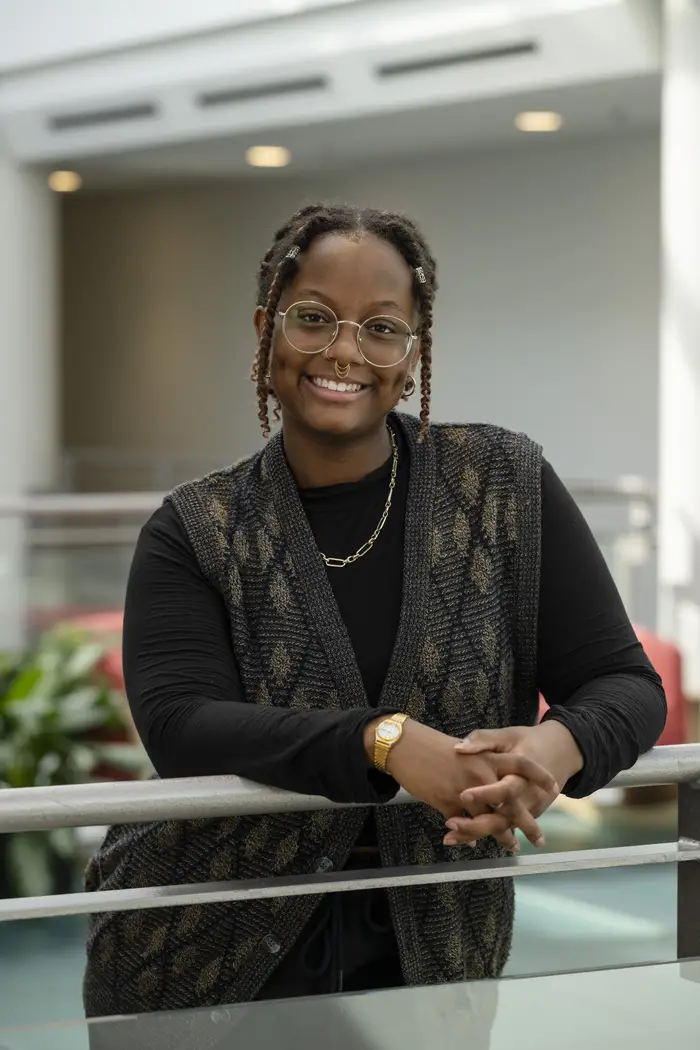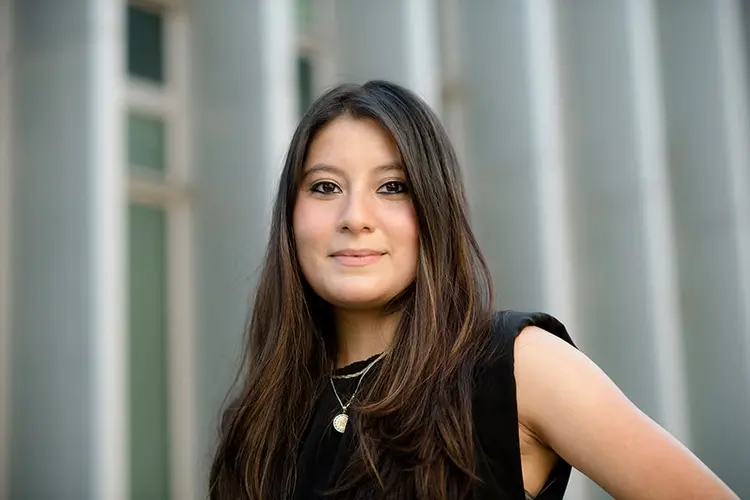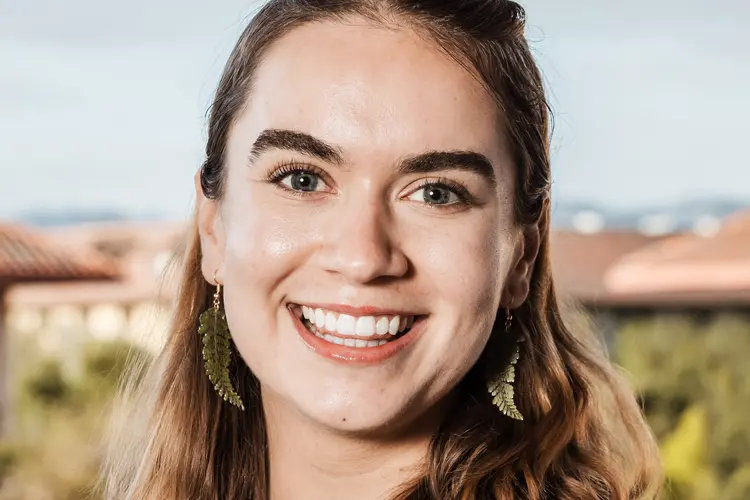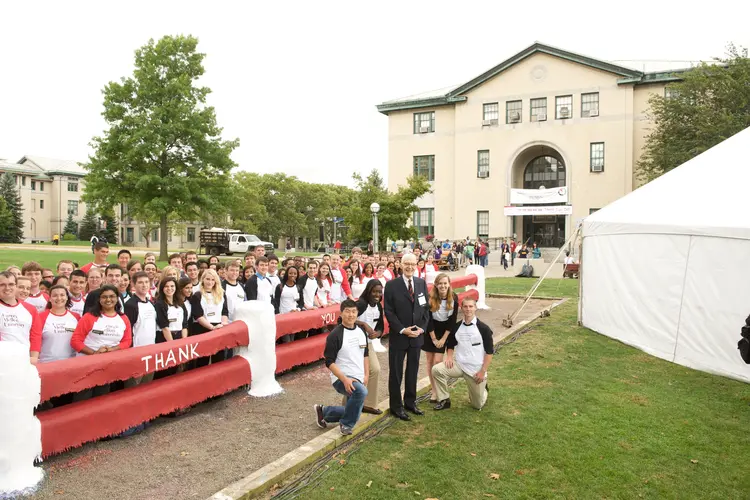Psychology Student Camille Chandler Named Beinecke Scholar
The third Carnegie Mellon student to receive the Beinecke Scholarship, Chandler plans to pursue graduate studies in the social sciences
Media Inquiries
Camille Chandler is a researcher, a leader and a dancer. She is an advocate for Black success and a champion for mental health. And as a 2024 Beinecke Scholar, she is a force to be reckoned with at Carnegie Mellon University and in the greater academic sphere.
Established in 1971, the Beinecke Scholarship Program(opens in new window) was founded to inspire and enable driven, hardworking students to pursue graduate education in the arts, humanities and social sciences. CMU nominated Chandler, a junior in the Dietrich College of Humanities and Social Sciences(opens in new window), for this opportunity, and she was selected as one of 20 Beinecke Scholars nationwide.
“The Beinecke Scholarship is really competitive,” said Paige Zalman(opens in new window), associate director of the Office of Undergraduate Research and Scholar Development(opens in new window). “(Receiving this award) highlights Camille’s extraordinary research accomplishments as well as her future potential as a leading scholar — but it also highlights the incredible work of the Psychology Department here at Carnegie Mellon in terms of preparing students for meaningful careers in research.”
Studying Psychology at Carnegie Mellon
Growing up in Howell, Michigan, Chandler was acutely aware of the lack of diversity surrounding her and the impact that could have on a student and their success.
“In a way (my experiences) led me to CMU. I think that because of where I grew up, people didn’t really expect that Black people could achieve very much, and so I worked really hard to get to a really good university, which is part of what led me to CMU. Being able to prove to people that I could go somewhere like CMU was a part of getting me here.”
At CMU, Chandler started to realize how she could leverage her experiences to make a difference.
Chandler’s introduction to psychology began with taking an AP psychology course in high school. Fascinated by the study of why people behave in certain ways, Chandler came to CMU thinking that she wanted to become a mental health professional. Her path took a different turn after taking two courses — the first being Grand Challenge First-Year Seminar: We're Not Beyond Race: Race and Identity in America, taught by Kody Manke-Miller(opens in new window), associate teaching professor of psychology and Dietrich College’s director of research on diversity, equity and inclusion, and Kevin Jarbo(opens in new window), assistant professor of social and decision sciences. The second course was Introduction to Social Psychology taught by Manke-Miller and Michael Trujillo(opens in new window), assistant professor of psychology.
Exploring Research in Social Risk-taking
The early psychology courses helped Chandler focus her research interests, coalescing at the intersection of individuals and their social environments. Her research aims to understand how these factors impact behaviors and perceptions in a social setting. She aspires to help develop beneficial interventions to center Black success.
Chandler’s research to date has focused on preferences for standards of fairness in resource allocation and how people make sense of conflicting feedback. In her studies, she and a cohort of two other students investigated the impact of social rejection on social risk-taking. The project explored the experiences of in-groups and out-groups to examine social rejection and how it impacts a person’s social risk-taking behaviors. Her investigation was a joint project in the Data-Driven Diversity (D3) Lab(opens in new window) and the Stigma, Health, Equity, and Resilience (SHARE) Lab(opens in new window). Her project was accepted as a poster presentation at the Society for Personality and Social Psychology Conference.
Securing the Beinecke Scholarship
Chandler began preparing her Beinecke application package in January with support and advising from Zalman’s office. After a competitive campus nomination process,(opens in new window) a committee made up of staff from the Office of Undergraduate Research and Scholar Development and faculty who teach in the arts, humanities and social sciences selected Chandler as CMU’s Beinecke nominee.
“What Camille brings to the table is a very strong and impressive research background that highlights how well-positioned she is to not only be successful in graduate school but also to be a leader in her field of social psychology,” said Zalman.
Chandler received the news of her selection as a Beinecke Scholar through an email, and at first, it didn’t register. Once it did, she was thrilled and surprised.
“Winning this feels like a testament to my academic self-efficacy that I’ve been working on for a while,” Chandler said.
Chandler is now beginning to work on her senior honors thesis(opens in new window) project with Trujillo. This thesis will expand on her past studies, exploring the impact of skin tone on in-group role model effectiveness in the academic achievement of Black students.
“We’re so excited to see what she does next because it is very clear that she will have an important impact not just on Carnegie Mellon but on the future of her field and on her future students,” said Zalman.
Chandler made it clear that her support network has been essential in her academic journey and her path to earning this scholarship.
“I’m really lucky. I have a pretty good network of support at CMU that really helped me to apply for this. During the application process, Paige was so helpful — I sent her so many emails asking for feedback on everything that I was doing,” said Chandler.
As a Beinecke Scholar, Chandler will receive $5,000 just prior to starting graduate school, along with an additional $30,000 while enrolled and attending her graduate program of choice. She is still considering where to pursue her graduate studies.



